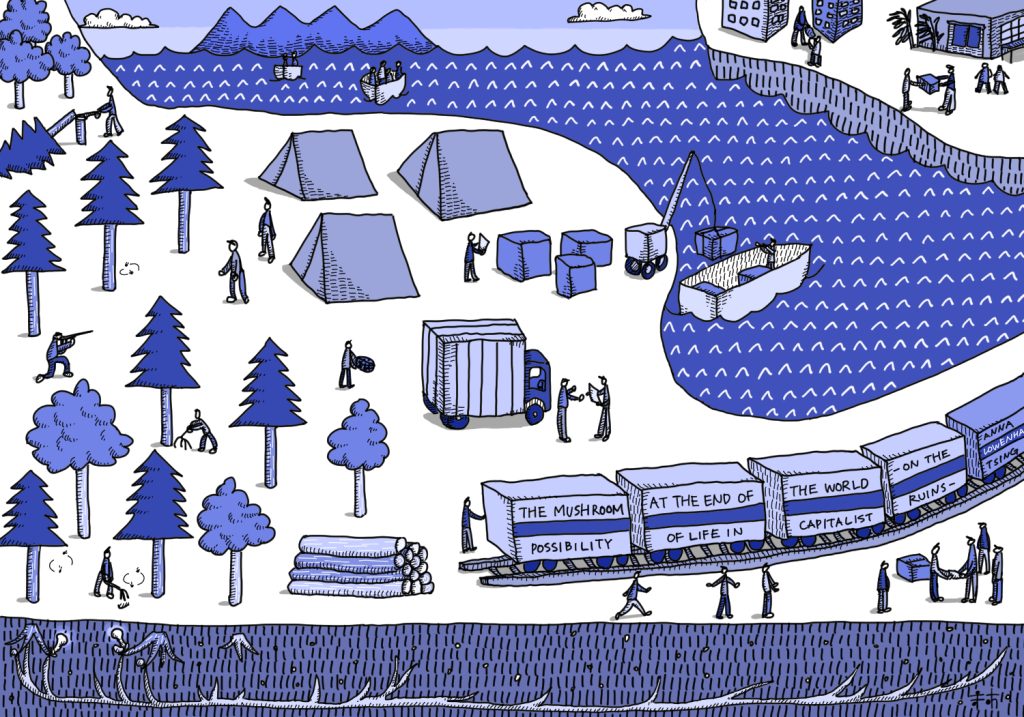
Multidisciplinary Contact over Mushrooms
Life in CSEAS is my first step away from the student routine. My new environment as a researcher is not entirely different, though, because somehow, I am still shielded by my supervisor. CSEAS is absolutely a welcoming, empathetic, and passionate environment. My understanding of the breadth of the research world and the magic of cross-disciplinary topics improved after chatting with more scholars from various academic backgrounds. Doors to new universes have opened before me, and I have found the motivation to examine the results of my study from a broader lens.
The book-reading seminar with my research buddies continues uninterrupted. We recently read an inspiring food-related work. Anna Lowenhaupt Tsing’s The Mushroom at the End of the World: On the Possibility of Life in Capitalist Ruins is about the international circulation of matsutake mushrooms. This book is more than just a story of how matsutake mushrooms made their way from the jungle to indigenous folks’ baskets and eventually to the tables of gourmets. In a time when we are accustomed to order, the matsutake mushroom presents a world beyond order. Above it, we can observe multidisciplinary contact—the wide variety of fields not limited to any one research area or ethnicity—through the many interactions and activities of all the direct and indirect actors in the global commodity supply chain of mushrooms. This includes human-to-human, human-to-nature, and species-to-species connectivity. The book has sparked fresh eyes to reevaluate the sustainability issue and widen the scope of its actors. I recommend it as a bedtime reading.